Lumber is susceptible to several common defects. These can occur naturally (such as knots) or during sawing, stacking or drying processes.
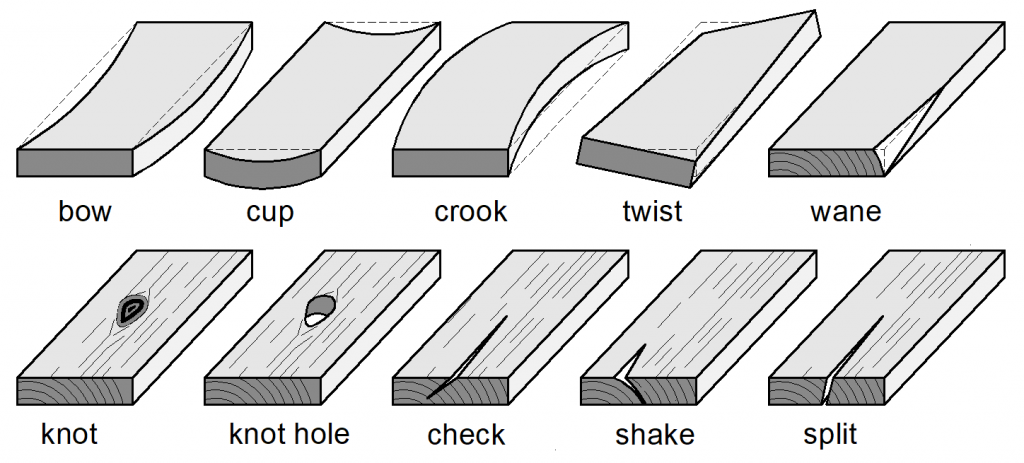
Bow
Bowing is curvature along the length of the wide face of the board. A bowed board will rock longitudinally when placed on a flat surface.
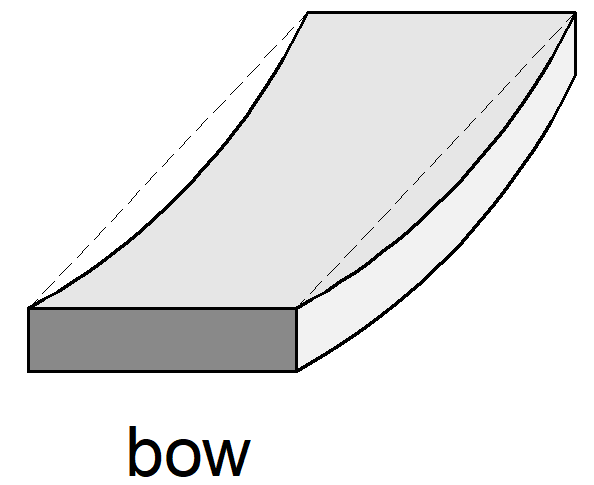
Cup
Cupping is curvature across the width of the wide face of the board.
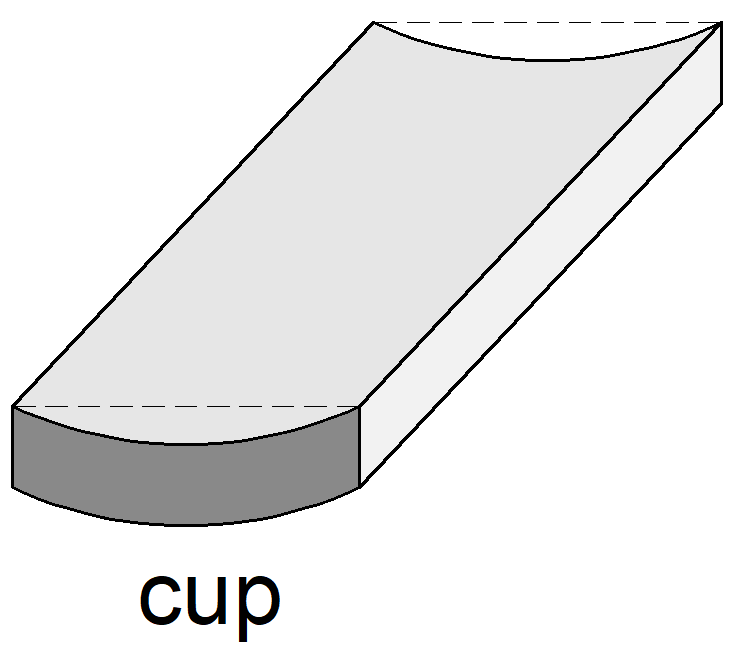
Crook or Crown
A crook (also called crown) occurs is curvature along the length of the narrow face or edge of the board.
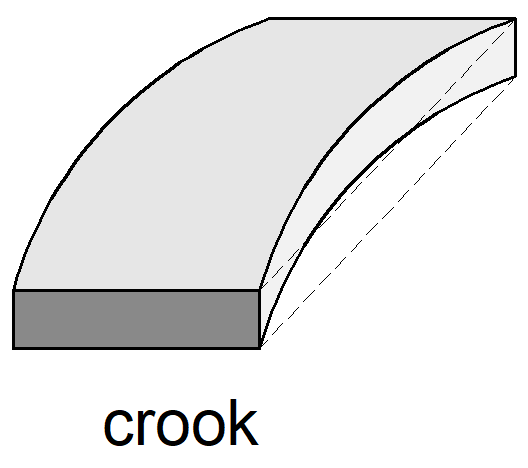
Twist
Twisting is a deviation from parallelism of the end edges of the board. A twisted board is curved along its own axis.
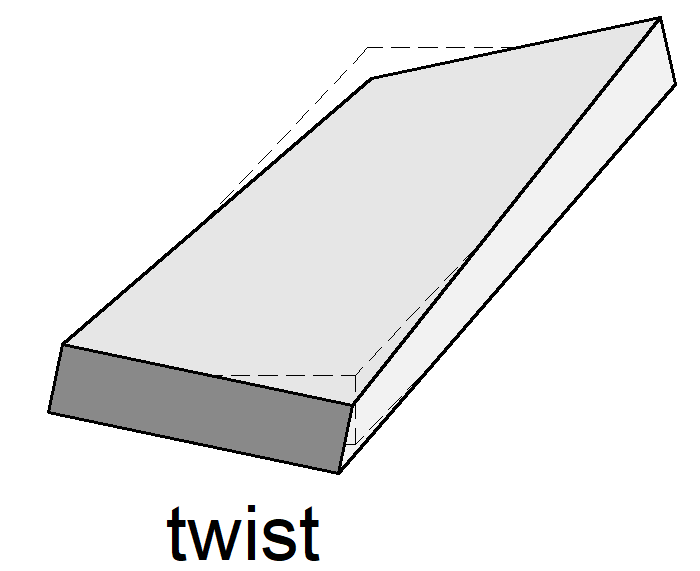
Wane
Wane occurs when a board is sawn near the outer periphery of a log. There is not enough wood present in the location of the cut to completely fill the outer dimensions of the bard.
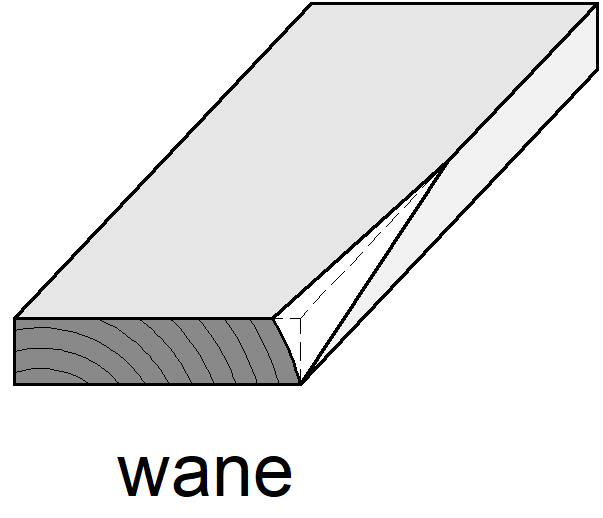
Knot
Knots occur where a tree branch is overgrown by a tree trunk. Sound knots (knots that are firmly in place) my not be considered defects in certain species and applications.
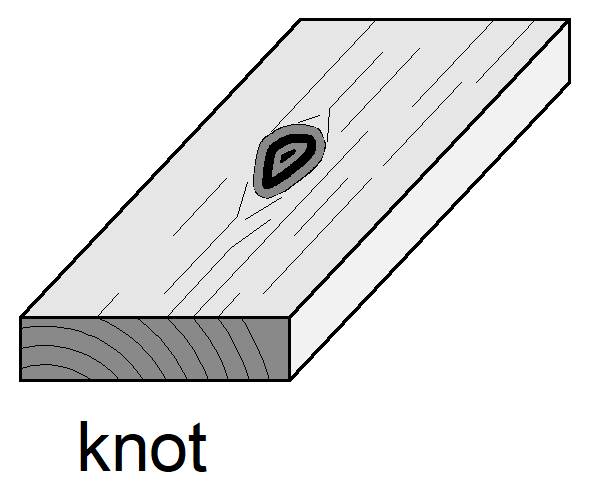
Knot Hole
A knot hole is a void left where a dead knot has fallen out of its position in the board or tree.
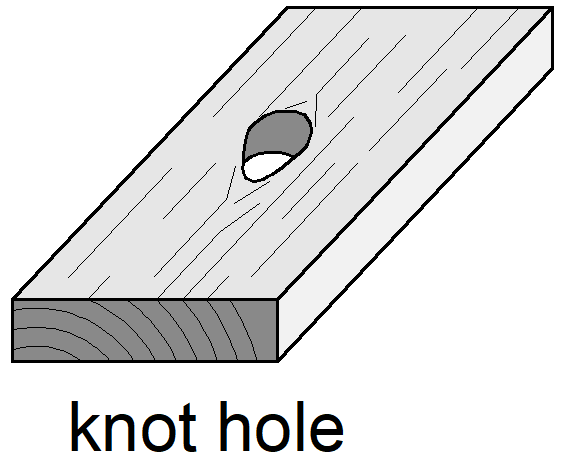
Check
Checking occurs along the radially across the growth rings of a board. Checks do not extend completely through the board.

Shake
Shakes are separation of growth rings.
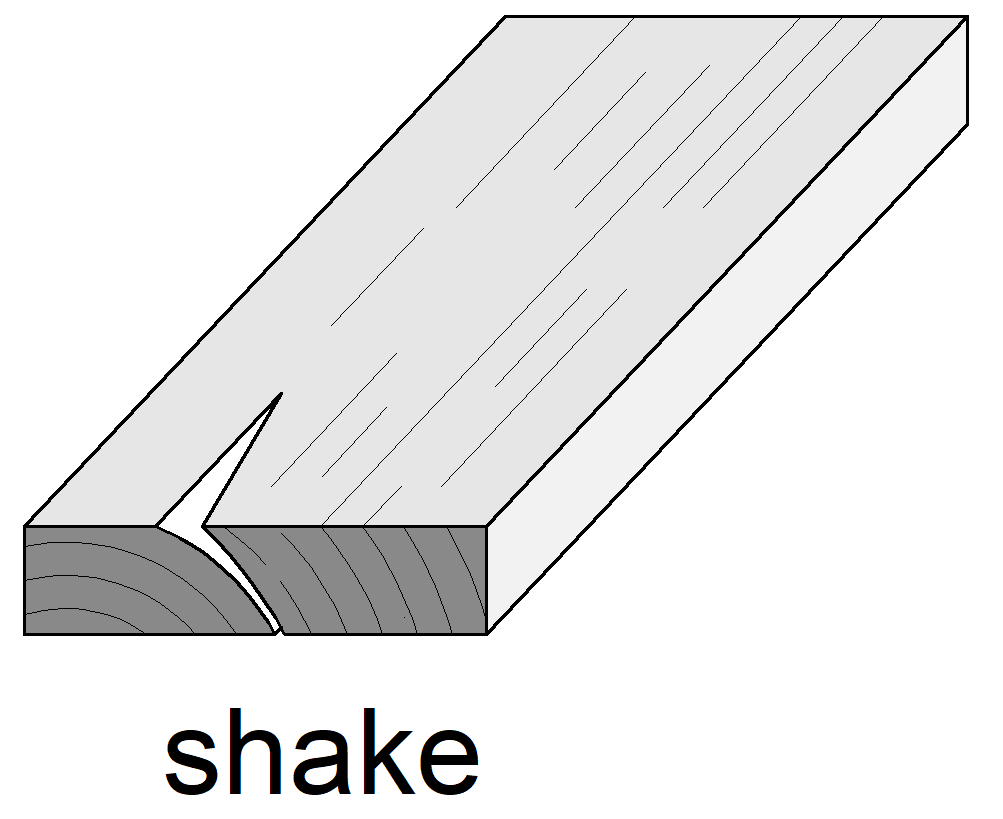
Split
Splits are cracks in a piece of lumber that extend completely through the board.
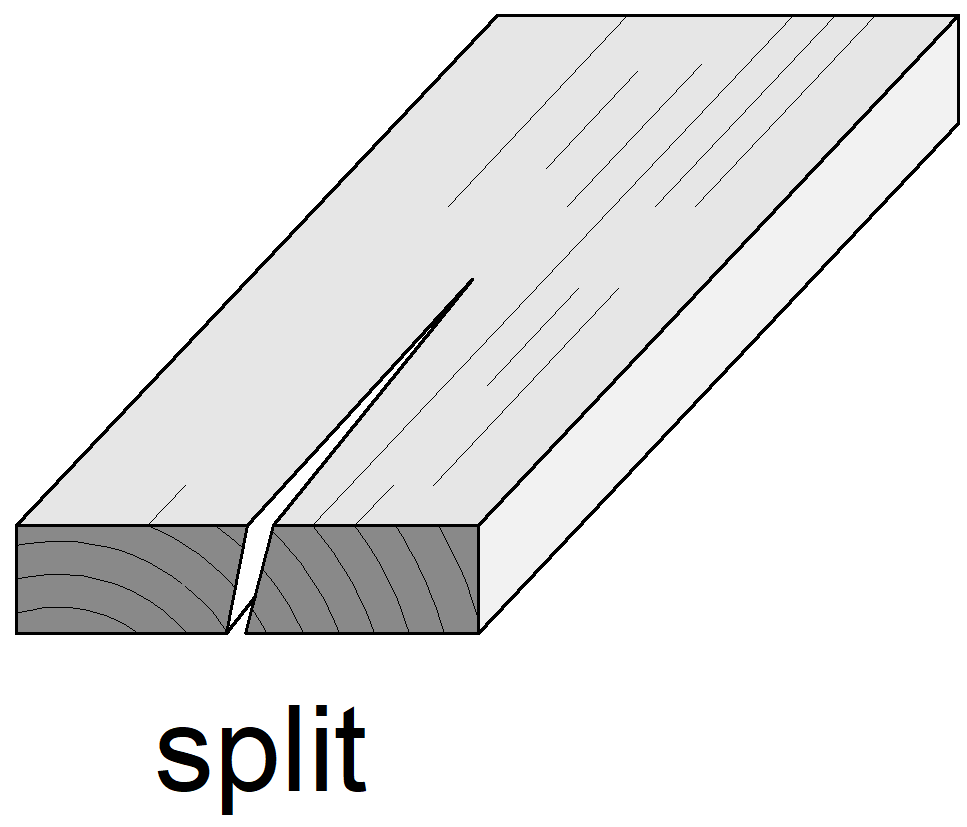

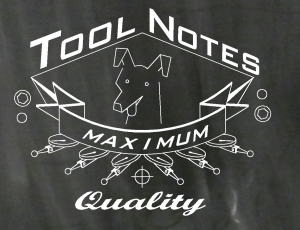
Recent Comments